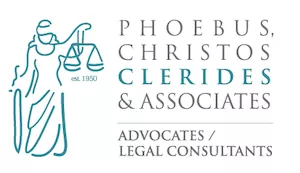- with readers working within the Property industries
- within Transport, Finance and Banking and Law Department Performance topic(s)
Floating charges serve as a vital financial tool in Cyprus, allowing businesses to secure loans while retaining the flexibility to manage their assets. Here's a concise overview of their key features and implications:
Key Features
- Scope of Assets:
- Floating charges cover both existing and future assets, enabling companies to use their assets freely until crystallization.
- Crystallization:
- These charges can convert into fixed charges if specified events occur, such as the appointment of a receiver. This process identifies and restricts specific encumbered assets.
- Operational Flexibility:
- Prior to crystallization, companies can manage, sell, or utilize their assets without needing creditor approval, facilitating smooth business operations.
- Reliance on Good Faith:
- The effectiveness of floating charges relies heavily on the good faith of all parties. Companies must maintain transparency about their financial status and asset management.
- Priority of Claims:
- Floating charges give secured creditors priority over unsecured creditors during insolvency, although fixed charges established before registration may take precedence.
- Legal Registration:
- To be enforceable, floating charges must be registered with the Registrar of Companies. Timely registration is essential for protecting the creditor's interests.
Challenges
- Market Confidence:
- In economic downturns, creditors may seek more substantial security than floating charges due to doubts about the company's repayment capacity.
- Management Limitations:
- A floating charge covering a substantial part of a company's assets can limit the directors' control over operations.
- Judicial Interpretations:
- The application of floating charges is in most ways shaped by court interpretations and precedents and does not have a clear statutory guidance.
Conclusion
Floating charges are crucial for financial stability and operational flexibility in Cyprus's commercial sector. However, challenges like economic uncertainties and limitations on asset management must be navigated carefully. Understanding the intricacies of floating charges ensures that companies and creditors can effectively safeguard their interests while adhering to legal requirements.
The content of this article is intended to provide a general guide to the subject matter. Specialist advice should be sought about your specific circumstances.


